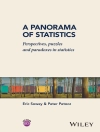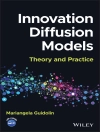Our understanding of information and information dynamics has outgrown classical information theory. The theory does not account for the value or influence of information within the context of a system or network and does not explain how these properties might influence how information flows though and interacts with a system. The invited chapters in this collection present new theories, methods, and applications that address some of these limitations.
Dynamics of Information Systems presents state-of-the-art research explaining the importance of information in the evolution of a distributed or networked system. This book presents techniques for measuring the value or significance of information within the context of a system. Each chapter reveals a unique topic or perspective from experts in this exciting area of research.
These newly developed techniques have numerous applications including: the detection of terrorist networks, the design of highly functioning businesses and computer systems, modeling the distributed sensory and control physiology of animals, quantum entanglement and genome modeling, multi-robotic systems design, as well as industrial and manufacturing safety.
表中的内容
The Role of Dynamics in Extracting Information Sparsely Encoded in High Dimensional Data Streams.- Information Trajectory of Optimal Learning.- Performance-Information Analysis and Distributed Feedback Stabilization in Large-Scale Interconnected Systems.- A General Approach for Modules Identification in Evolving Networks.- Topology Information Control in Feedback Based Reconfiguration Processes.- Effect of Network Geometry and Interference on Consensus in Wireless Networks.- Analyzing the Theoretical Performance of Information Sharing.- Self-Organized Criticality of Belief Propagation in Large Heterogeneous Teams.- Effect of Humans on Belief Propagation in Large Heterogeneous Teams.- Integration of Signals in Complex Biophysical Systems.- An Info-Centric Trajectory Planner for Unmanned Ground Vehicles.- Orbital Evasive Target Tracking and Sensor Management.- Decentralized Cooperative Control of Autonomous Surface Vehicles.- A Connectivity Reduction Strategy for Multi-agent Systems.- The Navigation Potential of Ground Feature Tracking.- Minimal Switching Time of Agent Formations with Collision Avoidance.- A Moving Horizon Estimator Performance Bound.- A p-norm Discrimination Model for Two Linearly Inseparable Sets.- Local Neighborhoods for the Multidimensional Assignment Problem.












